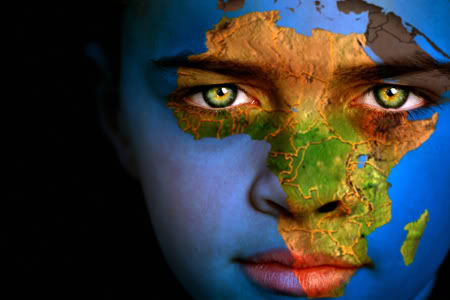On December 14 the United Nations celebrates the 50th anniversary of the Declaration on the Granting of Independence to Colonial Countries and Peoples, being aware that many territories have not been able to implement the resolution. Some media, like the Spanish daily El Mundo have echoed the date. 60157
On December 14 1960 the UN General Assembly passed a crucial decision that changed the world map; the Declaration on the Granting of Independence to Colonial Countries and Peoples, known as Resolution 1514 (XV), which came in response to the strong decolonization struggle mainly leaded by civilians in Africa and Asia.
As a result, 19 new sovereign countries were emerged, 17 of them in Africa, and admitted by the United Nations. The Declaration was considered one of the most important goals of the UN, as it recognized the right of people to decide about their future.
The text of Resolution 1514, which was inspired by the model of the Declaration on the Rights of Man and of the Citizen adopted in France in 1789, claimed: ‘the subjection of peoples to alien subjugation, domination and exploitation constitutes a denial of fundamental human rights, being contrary to the United Nations Charter and an impediment to the promotion of world peace and cooperation. Steps should be taken to transfer, unconditionally, all powers to the Trust and Non-Self-Governing Territories so that they might enjoy complete freedom and independence’.
However, the process, which celebrates the 50 anniversary on Tuesday, still unfinished, due to there are territories waiting to exercise their right to self-determination in terms expressed in the resolution.
Among these territories, UN mentions Gibraltar, Western Sahara, the Falklands (or Malvinas, as they are called by Britain) or New Caledonia, which are followed by a special UN committee on Human Rights.
But what happens with Palestine? The UN Commission on Human Rights adopts resolutions on the situation in occupied Palestine every year. In those documents, the Commission reaffirms ‘the continuing and unqualified Palestinian right to self-determination, including the option of a State’.
However, Israel’s policies and practices continue violating the prohibition of colonialism that the international community developed in the 60’s.
According to a study made by the Research Council of South Africa’s Human Sciences, ‘Israel denies the right of self-determination for the indigenous population and indicates a clear intention to assume sovereignty over parts of their land and natural resources. The permanent annexation of the territories is the hallmark of colonialism.’
In addition, the research made a special mention to the Israeli policy of Apartheid, based on the International Convention on the Suppression and Punishment of the Crime of Apartheid.
‘Israeli law passed privileges to Jewish settlers and Palestinians disadvantage in the same territory on the basis of their identities. Israel’s practices are the corollary of five of the six ‘inhumane acts’ in the Convention,’ the report said.
However, it is also worth mentioning that the civil struggle against the Israeli occupation and Apartheid policy is more alive than ever. In view of the land grab, the Annexation Wall, the illegal settlements, the denied right of return for the refugees, the human rights violations and the lack of freedom to move in their own country, Palestinians have shown a strong sense of commitment, even when the international community has looked the other way, has support Israel or sympathized more with the independence process of other territories.
The UN Secretary-General, Ban Ki-moon, admitted, with regard to the anniversary, that in its 50 years of history, the resolution has not been applied in all cases and particularly expressed UN’s compromise with Palestinians in the current peace talks context, claiming that ‘they [Palestinians] have inherent right to self-determination, national independence and sovereignty.’
To celebrate the 50th anniversary of the Declaration, an international conference holds on Monday and Tuesday in Algiers to find solutions for the Non-Self-Governing territories, which are considered to be in a stand by situation. Political leaders and thinkers from Africa, Latin America, Europe and Arab countries will attend the conference to find new strategies for the anti colonial struggle.
The conference seems to be a good platform to remind people that colonialism did not die among with the old imperial Europe, as well as to realize that in recent years the new colonialism has taken different forms, mostly hidden within the economic parameters.
But above all, the conference can be a tool to remember that there are millions people around the world who still live in occupied territories. Raising awareness of this situation is also a responsibility of the media.

